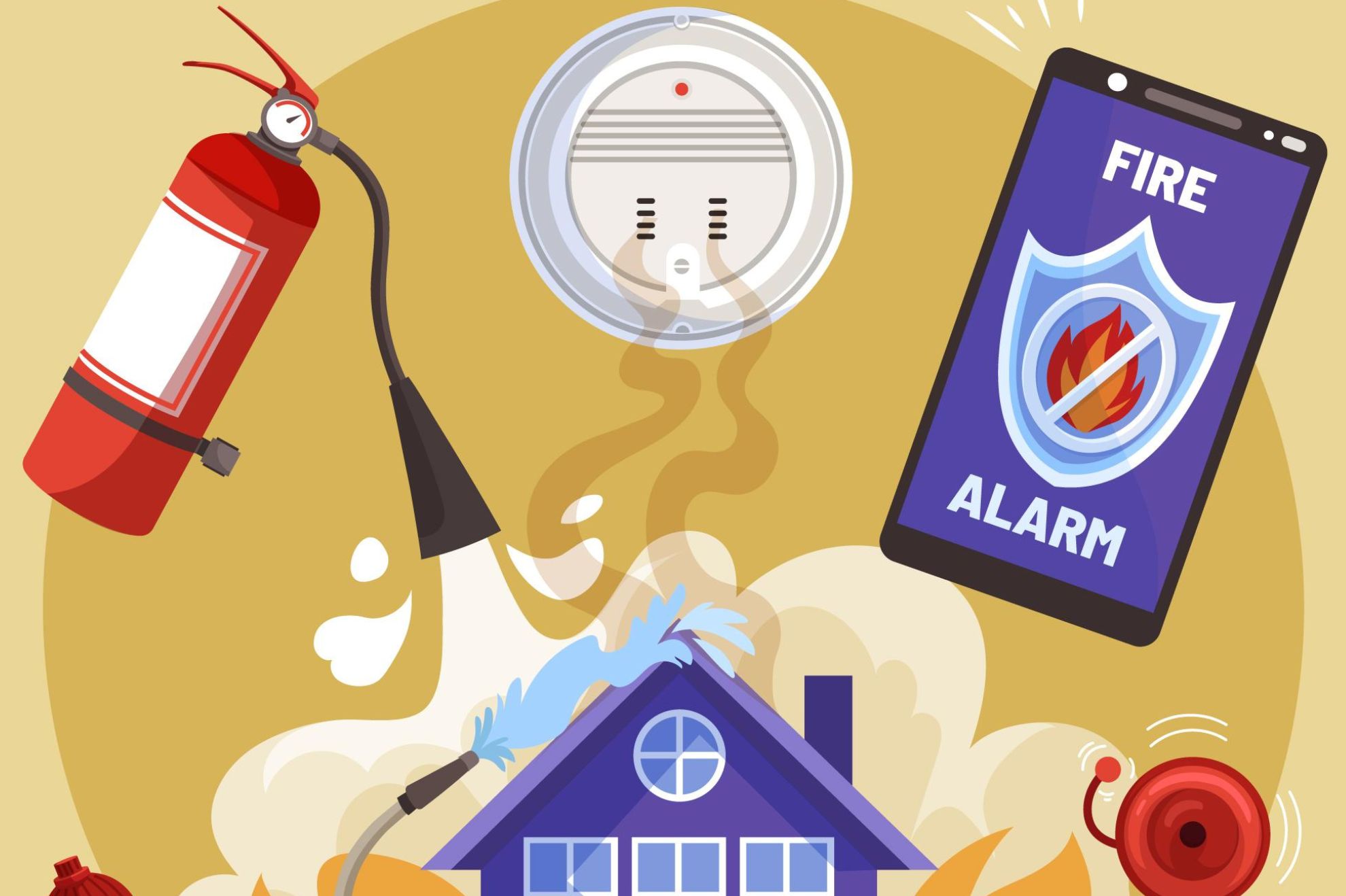A fire detector is part of a fire detection system with at least one sensor that keeps track of appropriate physical or chemical events connected to the fire. To control the equipment, it transmits a minimum of one corresponding signal to it. After that, the detector decides whether to activate the automated fire system or sound the fire alarm. It is designed to take early action. A fire detector is considered a life-saving device because it can result in huge losses if it does not work properly where it is fixed. Their alarms can save the lives of people present in the vicinity in the aftermath of a fire.
What is a fire detection system?
A fire detection is a system of electronic devices whose main purpose is to detect fire in its initial stage. A fire detection system provides a warning alarm, which helps the staff stop the fire before it spreads. It detects fire indicators such as smoke, heat, infrared light, or gas. If these indicators are present, the fire detection system produces the sounds. They are silent guardians which are present in the surroundings, ready to take instant action if a fire breaks out.
What are the different types of fire detectors, and how do they work?
There are different types of fire detectors on the market. Understanding the workings of different fire detectors helps you in deciding the best one for your needs.
- Smoke detectors: There are three types of smoke detectors, such as ionization smoke detectors, light scattering detectors, and light-obscuring detectors.
- Ionization: The ionization smoke detectors consist of two chambers, and there is a constant current flow between the two chambers. When the smoke arises in the surroundings and interferes between the two chambers, the current flow decreases and the detector produces an alarm.
- Light Scattering: This smoke detector works on the Tyndall effect. When smoke enters the space between a light source and a photocell, it scatters the light.. Due to the scattering of light, the detector produces a warning sound.
- Light Obscuring: In this smoke detector, when smoke enters between a light cell and a photocell, it interferes with the working of the detector. The photocell is there to consider the amount of light it is receiving; because of the presence of smoke, the amount decreases. Due to this, the photocell initiates an alarm.
- Carbon monoxide detectors: They are used to indicate the outbreak of fire in the surroundings by sensing the presence of carbon monoxide. Combustion mainly produces the poisonous gas carbon monoxide. This detector consists of an electrochemical cell that senses only carbon monoxide gas and not other combustible gases.
- Multi-sensor detectors: These detectors are a combination of heat and optical detectors. These sensors combine the input from both optical and heat detectors. Multi-sensor detectors sense different ranges of fire.
- Heat detectors: Heat detectors are designed to measure the temperature in the surroundings; if the temperature dips from the set temperature, it raises the alarms. However, late warning alarms are produced by heat detectors. When the fire exceeds the temperature and makes the surroundings unbearable, it initiates the alarm.
How do you choose a suitable fire detector for you?
Deciding which fire detector is suitable for you depends on different factors, such as:
- Consider your needs: While buying a fire detector for a building, apartment, or factory, you should consider factors such as the area, location, and capacity. Make sure to buy a detector capable of protecting you and your assets from fire.
- Understand the detectors: As you have discovered the different types of detectors and their workings, it will be clear to consider which detector suits you and which doesn’t. After understanding the workings, you can consider them according to your needs.
- Guidance from a professional: Installing a fire detector can be unfruitful if you are confused about which type is best for you or what your needs are. Therefore, consider the guidance of a professional who will help you install a proper fire detection system.
Why should you consider ESP Safety for fire detectors?
To sum up, you have an idea of what fire detectors are, what fire detection systems are, and their types. With years of experience and a commitment to the better production of safety products, we provide a comprehensive range of high-quality fire detectors. ESP Safety offers different systems of fire detectors that are suitable for you. Our advanced technology includes constant monitoring and swiftly detecting temperatures to prevent emergencies.
